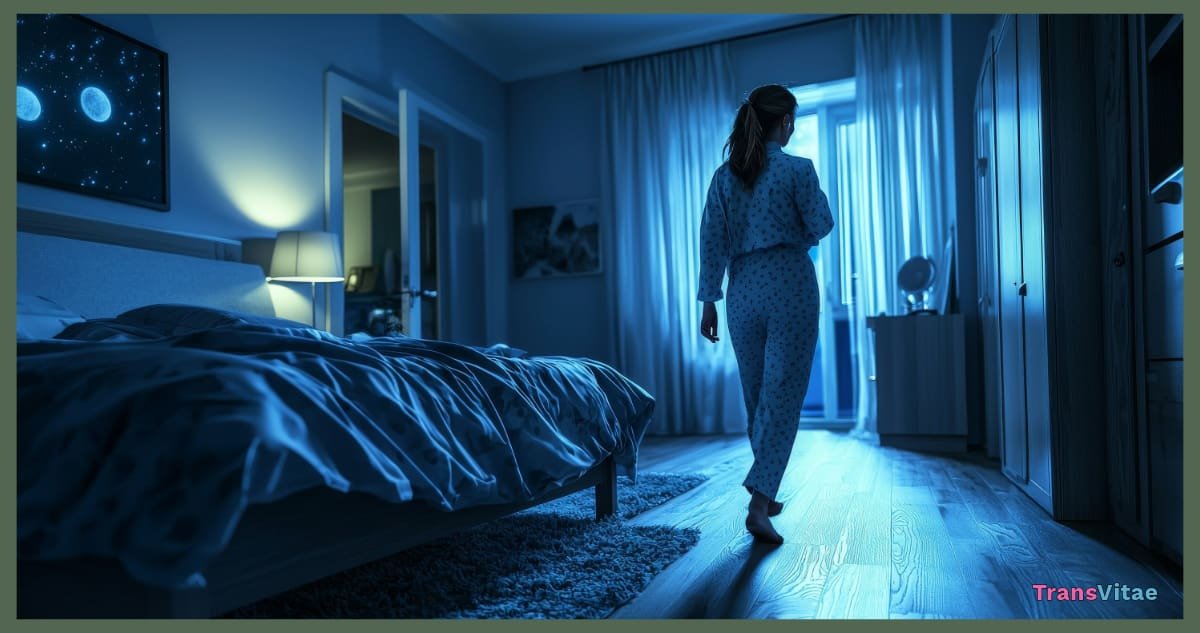Sleep disorders frequently affect transgender individuals, often overlooked in discussions about their health. Research indicates that these individuals experience sleep issues at rates significantly higher than their cisgender counterparts. Factors contributing to this problem include the challenges associated with transitioning, hormone replacement therapy (HRT), and the stress of gender dysphoria.
### Personal Experience As a transgender woman, I faced sleep problems even before my transition. Insomnia and exhaustion were constants in my life. After starting HRT, I encountered additional sleep disturbances. For example, my medication regimen includes spironolactone, which increases the need to urinate at night. This often leads to multiple awakenings, disrupting my sleep cycle. Recently, I had a notably embarrassing episode where I fell asleep while sitting on the toilet, leading to a clumsy fall. This incident, while humorous in hindsight, underscores the real impact of medication side effects on sleep quality.
### Hormone Replacement Therapy and Sleep HRT plays a significant role in sleep quality for many transgender individuals. Estrogen can enhance deep sleep but may also lead to vivid dreams. Conversely, testosterone blockers like spironolactone disrupt sleep patterns due to increased urination. Testosterone therapy for transgender men can also lead to sleep difficulties by causing heightened energy levels or restlessness. Adjustments in hormone levels can result in further sleep disturbances as the body adapts.
### Common Sleep Disorders in Transgender Community Studies reveal that transgender individuals are notably more prone to sleep disorders. Common sleep issues include: – **Insomnia**: Difficulty falling or staying asleep, often worsened by anxiety around gender dysphoria. – **Sleep Apnea**: Transgender men on testosterone therapy may develop obstructive sleep apnea, increasing the risk of airway obstruction during sleep. – **Nightmares and Night Terrors**: High stress levels or PTSD, prevalent among transgender individuals facing discrimination, can lead to frequent nightmares. – **Circadian Rhythm Disorders**: Irregular sleep schedules due to stress or shift work can disrupt the natural sleep-wake cycle.
### Mental Health Influences on Sleep Mental health challenges also significantly impact sleep. Anxiety related to coming out, fear of violence, and social rejection can keep thoughts racing at night. The discomfort from gender dysphoria can make restful sleep elusive. Depression, common in the transgender community, is linked to sleep disorders, leading to either excessive sleep or insomnia.
### Social Stressors Affecting Sleep Living in unsafe or unsupportive environments further complicates sleep health. Many transgender individuals face harassment or discrimination, which can lead to heightened stress and hypervigilance, making it difficult to relax even when conditions seem calm.
### Improving Sleep Quality To combat sleep challenges, transgender individuals can adopt several strategies to improve sleep hygiene: – **Create a Relaxing Routine**: Engage in calming activities before bed, such as reading or meditation. Avoid screens at least one hour before sleep to reduce blue light interference. – **Adjust Medication Timing**: If taking spironolactone or other diuretics, consider using them earlier in the day to minimize nighttime awakenings. – **Enhance Comfort**: Invest in quality bedding and sleepwear, and choose sleeping positions that reduce discomfort from binding or tucking. – **Prioritize Mental Health Care**: Therapy and support groups can help alleviate anxiety and stress, contributing to improved sleep quality. – **Establish a Sleep Schedule**: Go to bed and wake up at the same time daily to help regulate your circadian rhythm.
### Seeking Professional Help If sleep issues persist, consulting a healthcare provider familiar with transgender health can be beneficial. Sleep studies can identify conditions like sleep apnea, and adjustments to HRT may be necessary to address sleep disturbances. Cognitive-behavioral therapy for insomnia (CBT-I) can help reframe negative sleep-related thoughts.
### Building Community Connecting with others who share similar experiences can provide support. Online communities and support groups offer a space for sharing tips and coping strategies, helping individuals feel less isolated in their struggles.
### Recommended Sleep Aids For those seeking additional support, several over-the-counter sleep aids have positive reviews: – **Unisom SleepTabs**: Contains doxylamine succinate, effective for falling asleep without next-day grogginess. – **ZzzQuil Nighttime Sleep Aid**: A fast-acting liquid formula containing diphenhydramine HCl. – **Nature Made Sleep**: Combines melatonin with L-theanine for natural relaxation. – **Weider Melatonin-Free Sleep Aid**: Features herbal ingredients to promote relaxation without melatonin. – **Abundant Earth Natural Sleep Aid**: A melatonin-free option designed to support natural sleep cycles.
### Conclusion Sleep is vital for everyone, but it presents unique challenges for transgender individuals navigating hormonal changes and social pressures. By recognizing the causes of sleep disorders and seeking support, individuals can work toward achieving restful nights. Addressing sleep health is an essential part of overall well-being for the transgender community.



